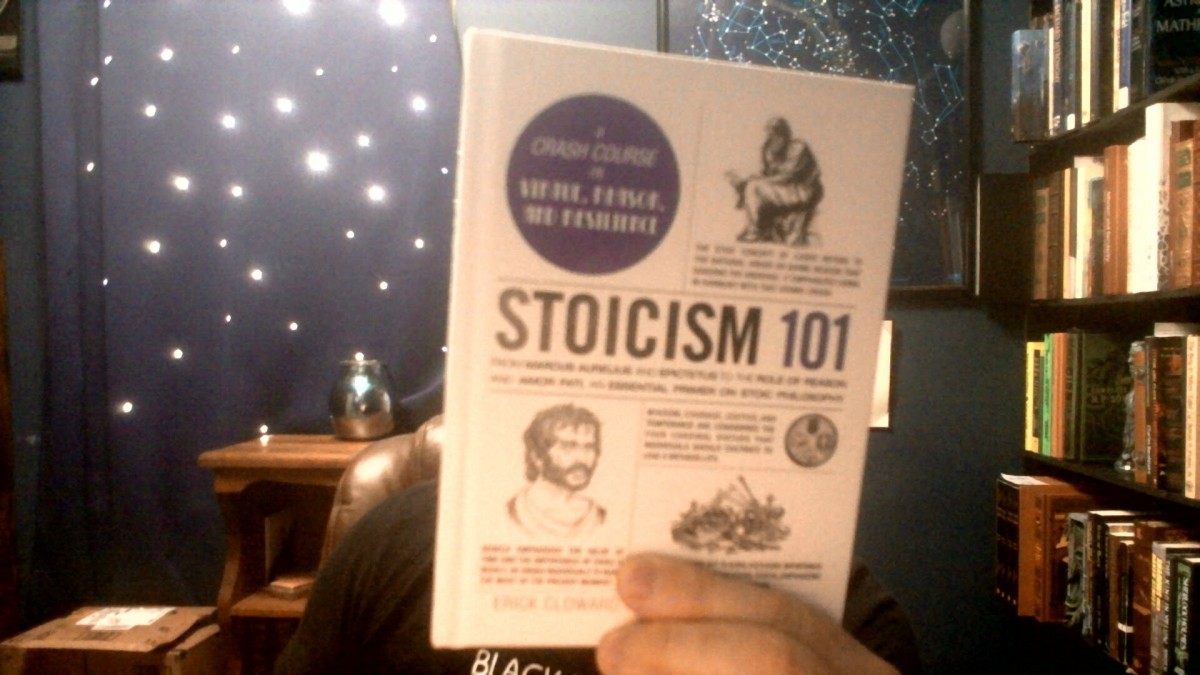Stoicism: What Does it Mean to be Stoic?

Stoicism:the Unfashionable Virtue
You've made your bed...now you must lie in it
Granny
When I think of stoicism my Grandparents come to mind, with their old-fashioned attitude of bearing up and taking what comes along with a quiet dignity. That and old British wartime dramas where much of the dialogue was interspersed with lines like "chin up old man" and "mustn't complain y'know old girl."
Countless schoolchildren were compelled to learn about stoic role models like Douglas Bader, the legless airman and Scott of the Antarctic, who on the eve of his own death, wrote the following:
I fear we must go...but we have been to the Pole and we shall die like gentlemen
And Scott's companion, Lawrence Oates, who, fearing he was holding the expedition party back, stepped out of the tent in his socks in a freezing blizzard with the selfess words:
I'm just going outside...I may be gone for some time.
Such noble sentiments seem almost like a parody in the present era of soft self-centredness, yet In my Grandparents day to be stoic was a noble character trait. It meant accepting adversity with a good grace, keeping quiet about your own pains and anxieties and not rushing off to a counsellor to offload about the terrible vissicitudes llife has thrust upon you. If they tripped over a crack in the pavement and broke a leg, it would never have occurred to them to hobble home and phone a personal injury lawyer. No, unfortunate mishaps had to be borne, not complained about.
This doesn't mean they never stood up for themselves or took things lying down when an injustice was perceived. They were as feisty as the next guy, aware of their rights but also conscious of certain ethical obligations. It was more a case of "what can't be cured must be endured".
Stoicism, bearing up with dignity in the face of adversity, is common to many cultures. To the Japanese for example, not to be stoic is is downright impolite and in many native cultures it's integral to the tribes character development. It's not inconceivable that early in human development stoicism proved itself a very valuable trait as "letting it all hang out" and wallowing in self-pity could well have been a major threat to survival. Of course there are still many examples of personal stoicism in the world today but what happened to stoicism as an ideal? Is it still in the frame? We might have to go back 60 years or so to see why those stoic role models slipped out of the school text books.
Social Change and the Me Generation
In the latter half of the 20th century there was a major kink in the social fabric and a resultant shift in emphasis from pompous ideas about stoicism and social compliance to a kind of mass social assertion, which involved self-exploration and self-expression. Unlike earlier generations, who had to suffer through a crushing depression and two World Wars, the post-war baby boomers, who had more leisure time and disposable incomes, could afford the luxury of introspection - socially and personally. They began to question government, morality and the general way of things, as well as give greater consideration to their own needs and wants. It was the birth of the infamous Me generation.
In many ways this social revolution, as it snowballed beyond the 60s, was a good thing. Decades, centuries even, of repression were peeled away like layers on an onion as people sought new freedoms in the way they lived their lives. Inequalities and injustices were highlighted and campaigned against, authority was challenged, institutions were debunked and demystified; the days of blind acquiescence to the status quo had, it seemed, disappeared forever and with it a certain innocence and faith in authority among the general populace. We became more cynical, less trusting and just maybe, a little more whingey and self-centred. In general, there was also an increase in expectations of happiness, fuelled by all encompassing capital-driven media which heavily promoted a materialistic, pleasure-seeking culture of desires and wants.

Is Stoicism a kind of Repression?
It had to happen. The revolution that so characterised the latter half of the 20th century was a necessary shift forward in our social consciousness and once the lid was popped off Pandora's box it was amazing what came out. For the first time we could talk openly about things which had been kept secret and many unsavoury things came crawling out from under the rocks that were kicked over - child abuse, rape, pedophilia, domestic violence, racism, sexism, homophobia, corruption and hypocrisy and much more. These were things that needed to be exposed and held under the light.
However, with all the general introspection came a certain mindset - we began to look for causes and blame for all our ills and problems. The individual and "my rights" became paramount and obligations to others, arguably, less so. Stoicism, ie; putting up nobly with what you can't change, didn't seem quite as appealing as letting the world know about your problems and looking for causes and in some cases, blame. Victimhood gradually obscured old-fashioned notions of stoicism - so much so that many teenagers have never even heard of the word.
There is, it's true, a certain bleakness about the word - to be stoic seems somehow grey, harsh and not much fun. What's in it for me? Isn't it better to let everyone know you're miserable than to keep it bottled up inside? Doesn't that lead to repression, isolation, stress and even severe health problems?
Well yes, it can, which is why people these days are encouraged to talk about their problems, to feel better and if necessary, seek help. Yet it may be worth noting here that repression is not always bad; some things are better left submerged and we don't need to cast a long, probing hook into every nook and cranny of the psyche to drag up things which are best left asleep. Moreover, there is a vast difference between recognising problems and issues and dwelling on them or searching around for something to blame.
While stoicism may be a kind of repression of personal internal and external pain, it is important because in enables us to get on with the business of living and not be cauterised [or distress others] by negative emotions such as self-pity, anger and resentment. Stoicism is a kind of pride, in ourselves. It can also help us deal with death and suffering. There is room in the human spectrum of responses for both modern openness and old-fashioned stoicism. I hope so anyway. There's a lot to be said for holding your chin up high and soldiering on, rather than banging your head against the brick wall of bad luck.

What the Ancients Thought About Stoicism
Stoicism as a Hellenistic philosophical movement, emerged around 300 BC. Founded by Zino of Citium, it was based on and expanded some of the earlier ideas of the Greek Cynics [different meaning to what we think of today] who concerned themselves with living virtuously in sync with nature, rather than railing against it.
To the Stoics, human existence is set amidst a universe of cosmic determinism and in order to overcome destructive emotions and live an ethical and happy life, we must learn to accommodate ourselves to fit in with the "reasoning" of the natural world, rather than try to fight it.
One of the most well-known, later exponents of stoicism was the Roman philosopher, Seneca, who was an advisor to the Emperor Nero. According to Seneca, harmful emotions such as anger, frustration and anxiety, stem from maintaining unrealistic expectations about the world; we shouldn't get upset when things don't go our way, we should expect it or at least be always prepared for the possibility.
In other words, we have no right to believe the universe is working with our interests in mind. however hard we try we cannot make it conform to our wishes. Thus we should always take stock of what could go wrong in any given situation and not be taken aback or get angry when they do. This way we are in a better position to adjust our expectations, avoid feelings of self-pitying injustice and take things on the chin. We may not be able to change bad luck but we can change our attitude toward it.








